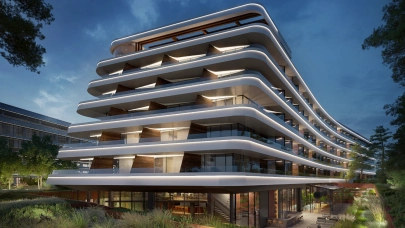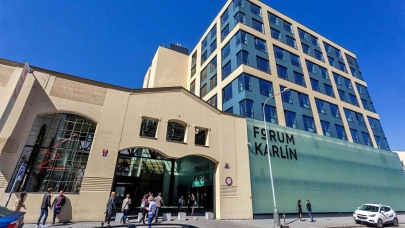
"We have recently come across Steelcase's recent survey of 58,000 individuals from 11 countries, which has uncovered intriguing insights into what it will take to entice employees back to the office. The findings, both expected and surprising, shed light on the importance of selling rather than imposing a return to the workplace in the current competitive labour market," writes Darren Allen, Director at Genesis Property, for Property Forum.
Allan Smith, Chief Revenue Officer, and Ron Martere, Business Group VP at Steelcase, have analyzed the research and shared their perspectives on "earning the commute" of employees who prefer working remotely. The initial concerns during the pandemic revolved around safety, but as time progressed, individuals began considering the drawbacks of commuting and shifted their focus to privacy issues and collaboration with colleagues.
To make the office more appealing than remote work, Martere emphasizes that it should be the ideal environment for productivity, offering access to colleagues, advanced technology, and a thriving organizational culture. The aim is to create an attractive workspace where employees want to be, rather than feeling obligated.
Based on the survey data, Smith and Martere highlight several key factors that employees desire when returning to the office:
- Concentration: Individuals value the ability to work without distractions. Maintaining privacy, both acoustically and visually, is crucial to replicate the focus they experienced while working remotely.
- Collaboration: People seek opportunities to connect with colleagues and foster teamwork. The shift towards more meeting room spaces and informal settings reflects the need for spaces that facilitate collaboration.
- Effective Hybrid Meetings: Designing meeting rooms with a focus on engaging experiences is essential to ensure hybrid meetings are enjoyable and inclusive. Rooms should be easy to use and provide an equitable experience for all participants.
- Sense of Belonging: Employees yearn for a sense of belonging to their organization, and the office plays a vital role in bringing people together. Thoughtful office design, incorporating biophilia and thoughtful planning, creates a hosted work experience that fosters connection and engagement.
- Differing Needs by Age: Younger employees (under 30) tend to favour the office as a means of social connection and career development. Older employees (over 50) are accustomed to the traditional office environment. However, those between 30 and 50 years old often prefer working from home, appreciating the flexibility it offers.
- Social Support: Employees in the 30-to-50 age group face challenges such as childcare and eldercare. On-site or easily accessible childcare services are identified as significant needs, along with other work-life balance amenities like laundry and dry-cleaning services.
- Importance of Culture and Leadership: A positive organizational culture and good management significantly impact employees' decision to return to the office. While a well-designed workspace is essential, a toxic culture or unsatisfactory leadership can discourage employees from coming back.
Ultimately, understanding employees' preferences and addressing their needs is crucial for companies aiming to create a compelling and appealing workplace that surpasses the benefits of remote work.
And that is what we do at YUNITY Park, a new real estate concept that will bring together a network of options for future work and urban living trends in a unique space.
YUNITY Park is designed as a campus-like extension of the office that provides urban support for experiences tailored to people's lifestyles, both during office hours and personal or social time. YUNITY Park represents the future of life within and beyond the office. It is an urban destination that heavily emphasizes public space, where professional and social lives have equal opportunities for fulfilment.

Darren Allen
Director, Healthy by Design Building Institute & Development Manager
Genesis Property



